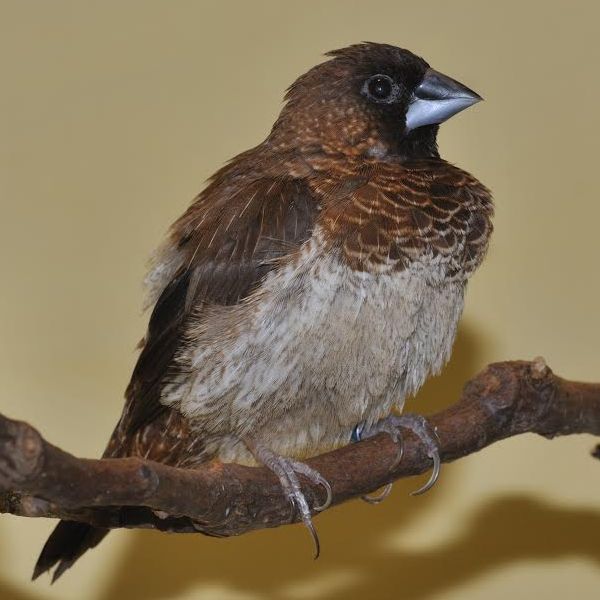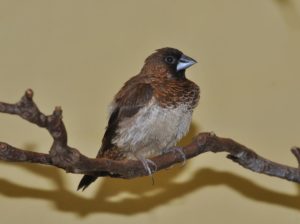Bengalese finches, songbirds that have been used to research the learning, perception, and production of bird song, are the model system used by Berkeley Lab scientist Kristofer Bouchard and Michael Brainard of UC San Francisco to determine the relationship between song sequence structure and brain activity. As reported in their PNAS article published last week, “Auditory-induced neural dynamics in sensory-motor circuitry predict learned temporal and sequential statistics of birdsong,” the researchers studied how the birds brain forms predictions for the timing and identity of specific “syllables” that it has learned to sing.
“We utilized the fact that Bengalese finch song is composed of discrete syllables and that the transition probabilities from one syllable to another syllable, and the pauses between syllables, is reproducible when analyzed over several months,” said Bouchard, research scientist in the Biological Systems & Engineering Division. “We therefore hypothesized that brain activity would predict the timing and identity of song syllables.” After playing the bird recorded versions of its own song, Bouchard and Brainard measured neural activity in a sensorimotor area of its brain and found that the song induces continuing brain activity that is predictive of the timing and identity of the next syllable. When the upcoming syllable was uncertain, the prediction was weaker. Bouchard said, “We are excited by these results because predicting future events is critical for perceiving and responding to the environment, but there are few demonstrations of brain activity that is predictive of learned events.” Given these data, Bouchard and Brainard hypothesize that other sensory and motor circuits are built to function the same way. “Which means,” Bouchard continued, “we may be able to use the songbird as a model system to study how the human brain forms predictions of future events that reflect the uncertainty of those events. For example, if you hear ‘Lawrence Berkeley National’, you would probably predict that the next word would be “Laboratory”, but if you heard ‘Lawrence’, your confidence in predicting the next word (e.g., ‘Berkeley’, ‘Livermore’, ‘Expressway’) is greatly reduced.”





